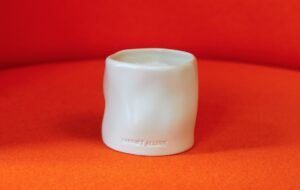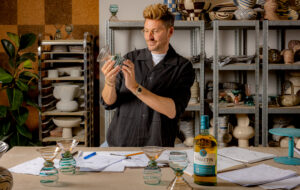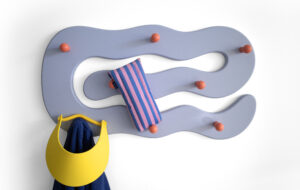|
|
||
|
Cutesy food packaging, Pokemon Go, adult ball pits … why can’t we all just grow up, wonders Debika Ray A new establishment has opened near my home in north London. ‘BallieBallerson is an adult play pen set over two floors,’ its website says. ‘The underground club is kitted out with 250k clear balls set upon an LED dancefloor.’ On weekends, the over-18s venue offers a session of ‘ball-pit hide and seek’ followed by ‘two hours of bottomless spaghetti meatballs’. Queues suggest demand is high, but fear not: ‘Our ball cleaning machine GobbleMuffin can disinfect 18,000 balls an hour.’ Has it really come to this? Yet this unsettling pastiche of a children’s birthday party is the logical conclusion of the progressive infantalisation of our physical, social and digital environments in recent decades. You could trace it back to the launch in 1998 of drinks brand Innocent, which, with its unthreatening lower-case typography, childish illustrations, sugary tone, primary colours and knitted hats, instigated a wave of cutesy, anthropomorphic branding initiatives. ‘Keep me in the fridge!’ your bag of salad now implores. ‘Yes, I really do need all this stuff!’ simpers a new range of make-up bags. ‘Oops, I couldn’t find the page you’re looking for,’ gasps Google. In reality, these infuriating campaigns are part of a wider shift in our consumer culture: youthfulness has always been desirable, but in recent decades it has been fetishised. Ageing politicians boast of their love for the latest chart-toppers to appear ‘relevant’; offices across the world take inspiration from the slides, neon signage and pool tables of the Silicon Valley set. Today, there are lucrative adult markets for super-hero movies, video games, Harry Potter merchandise, Pixar cartoons and Pokemon Go. As a society, we’ve regressed. This has been nurtured in no small part by the corporate sector, which has come to realise that the ideal consumer is a three year old (suggestible, impulsive, individualistic, irrational) with an adult’s autonomy and income. At a time when our brand affiliations increasingly define us, youth is sold less as a transitory stage in a journey to maturity, but a lifestyle choice. As such, childish pastimes and products that exploit our nostalgia and lust for instant gratification – sold to us in packaging that’s the aesthetic equivalent of candy-floss – are crucial to sustaining a consumer-driven economy, which thrives on flogging the superfluous, as well as the functional. It’s tempting to blame ‘millennials’ for this shift – a group, we’re told, that’s characterised by its immaturity. But this generation is no less a product of its environment than those before it. With neither the classic benchmarks of maturity (career stability, financial security, home ownership), nor the privileges of youth (free further education, an accessible job market, a social safety net), adulthood is endlessly deferred. If growing up is not a viable option, the invitation to be forever young is less a liberation from traditional norms and expectations, than a symptom of the constrained choices and limited control many face today. As their unprecedented turnout in June’s British general election revealed, young adults are crying out for an alternative – but when all you’re offered is sugar, who can blame you for gobbling it up. For marketers, the message to sell is a no-brainer: live in the moment, reject adulthood, with its tedious responsibilities and duties, before it rejects you. A child’s world is filled with fantastical possibilities and the illusion of endless choice, so, as aggravating as it is, perhaps I shouldn’t chastise my fellow millennials for indulging in the bread and circuses of the adult ball pool. Nonetheless, if you’re tempted to give the designers of this infantalised environment a pass, read the label of an Innocent Smoothie bottle in the voice of a board executive at Coca-Cola, which owns the brand, and consider how cute it really is. |
Words Debika Ray |
|
|
||


















